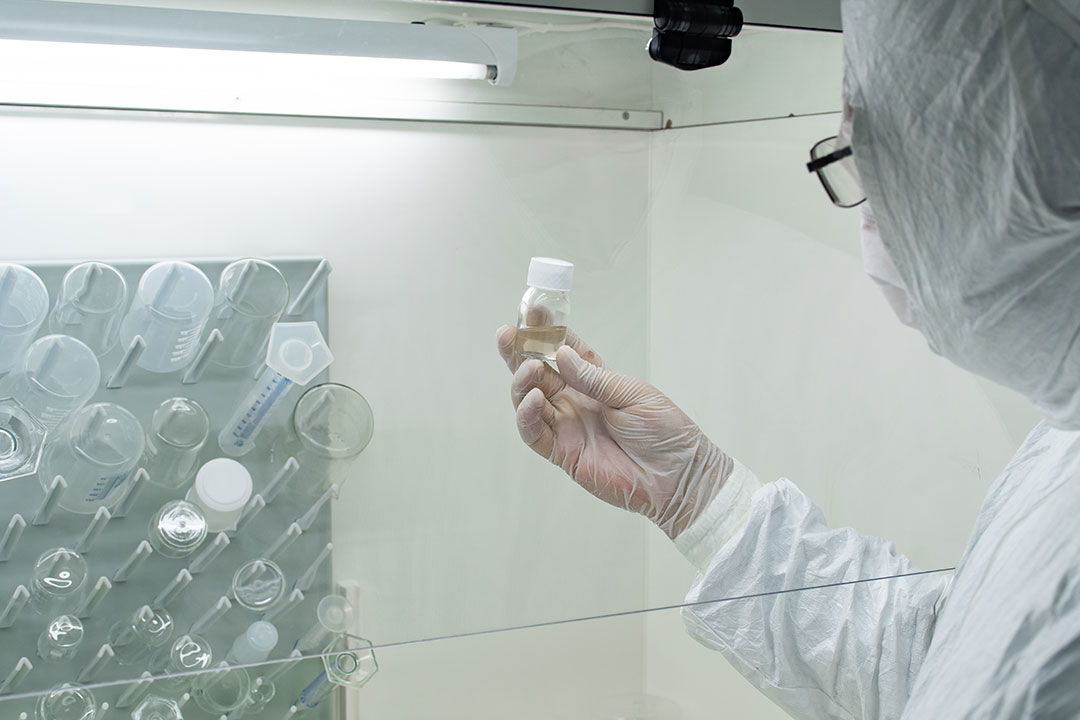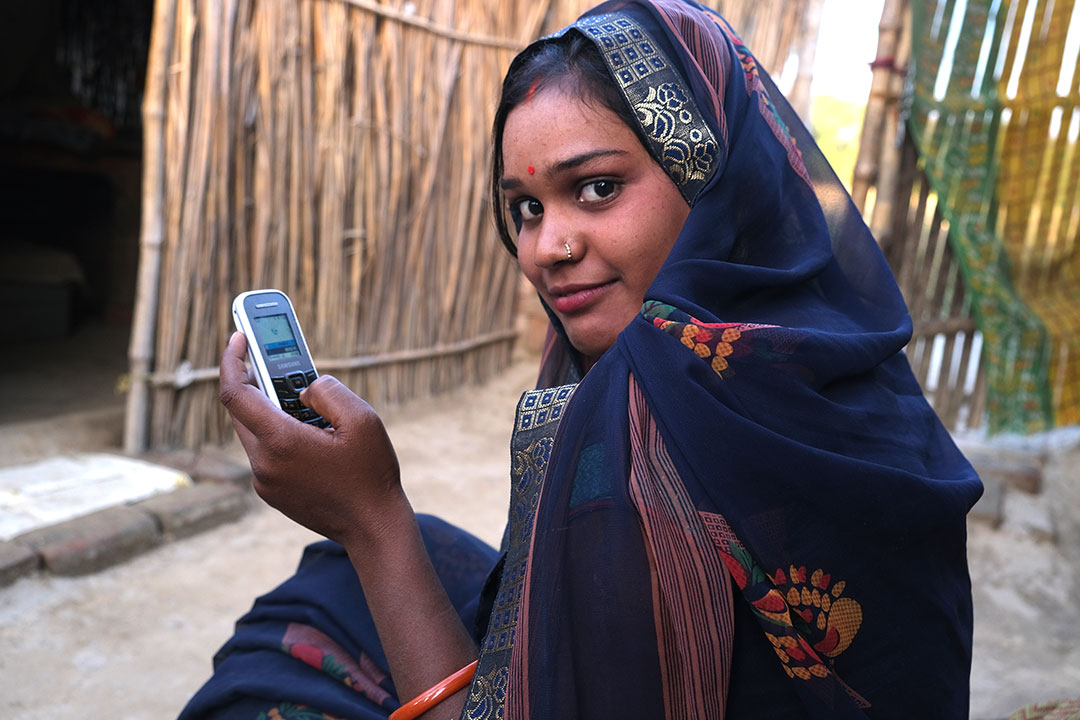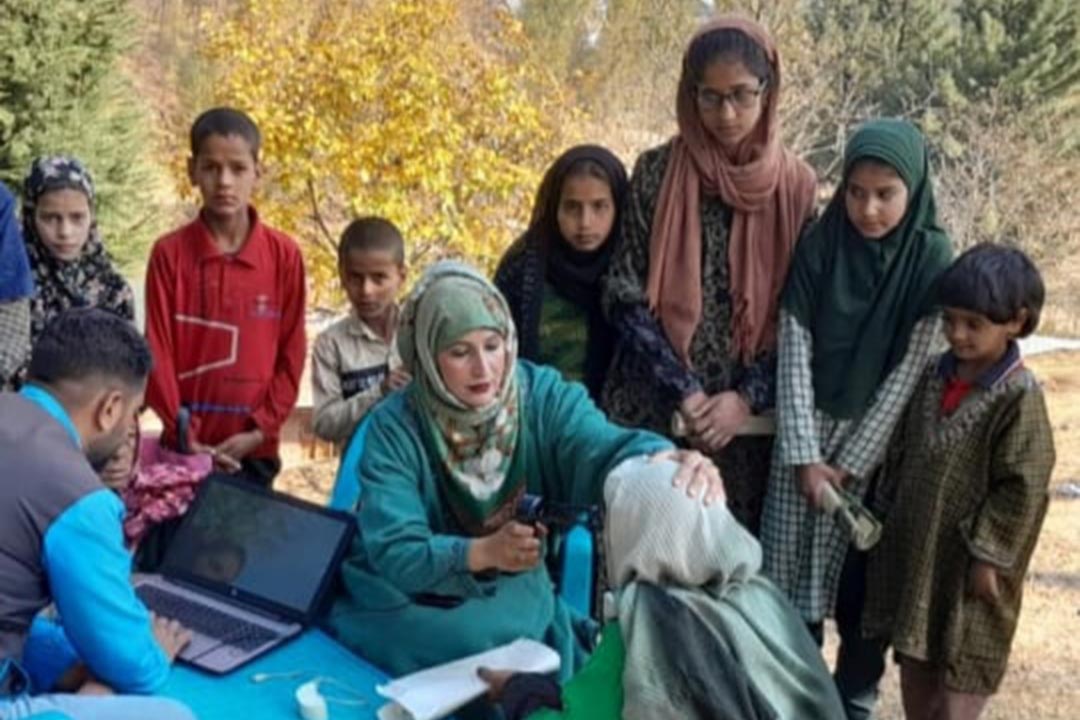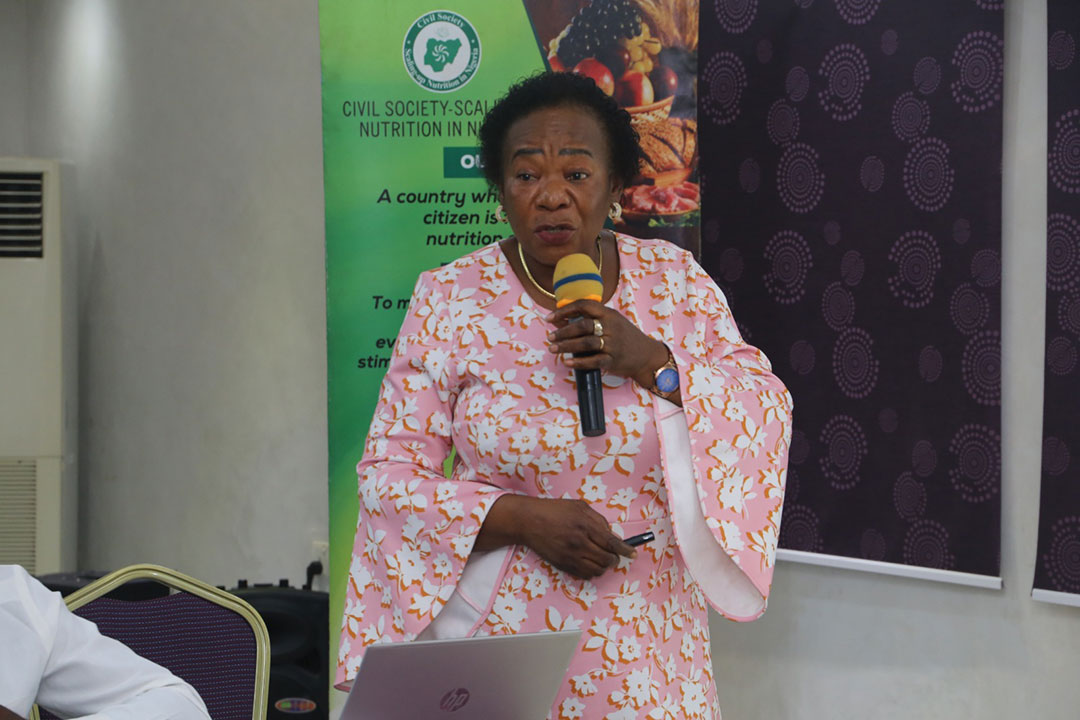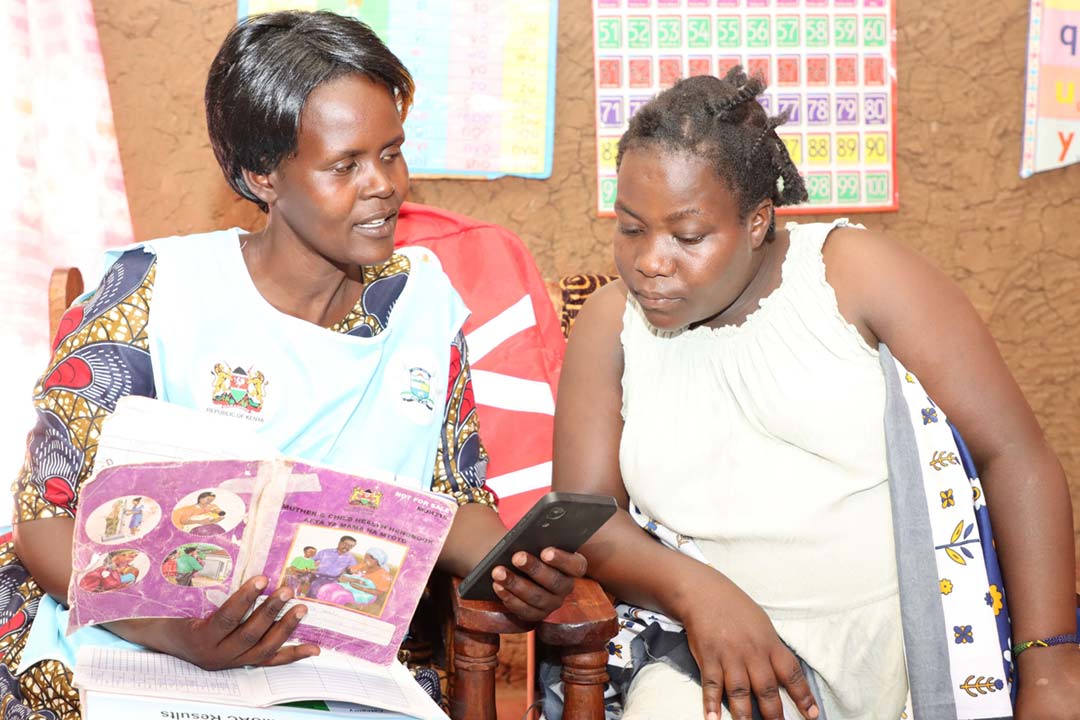Sacred and safe: How the Hajj gets vaccinated
The pandemic’s caps on numbers have lifted, and this year’s Hajj will draw millions. Countries including India are rolling out special vaccination drives to keep pilgrims safe from epidemic diseases.
- 1 June 2023
- 5 min read
- by Nasir Yousufi

Fifty-one-year-old Amina Bano was returning with her granddaughter from Hazratbal, a popular shrine in Srinigar, India, when her husband broke the good news. After waiting for four long years, the middle aged couple had made it into the government quota of pilgrims for the 2023 Hajj.
“It is only tomorrow we will get vaccine jabs at Haj House. I am happy to get them on the very first day of vaccination programme for Hajis."
– Gulzar Ahmad, undertaking the Hajj this year
"I am speechless to praise the Lord! Finally, He has listened to our prayers," exclaimed jubilant Amina. The pilgrimage to Mecca, one the five pillars of Islam and a religious duty incumbent on any Muslim physically and financially able to undertake it, has been a "lifelong dream" for Amina.
With this year's Hajj season due to kick off on June 26, preparations began immediately. There was essential luggage to arrange, Hajj-related training to participate in, guidance from experts to seek, and, of course, health check-ups and vaccinations to schedule.
"It is only tomorrow we will get vaccine jabs at Haj House. I am happy to get them on the very first day of vaccination programme for Hajis, as vaccination is a prerequisite to enter the holy city of Mecca," said Gulzar Ahmad, Amina's husband.
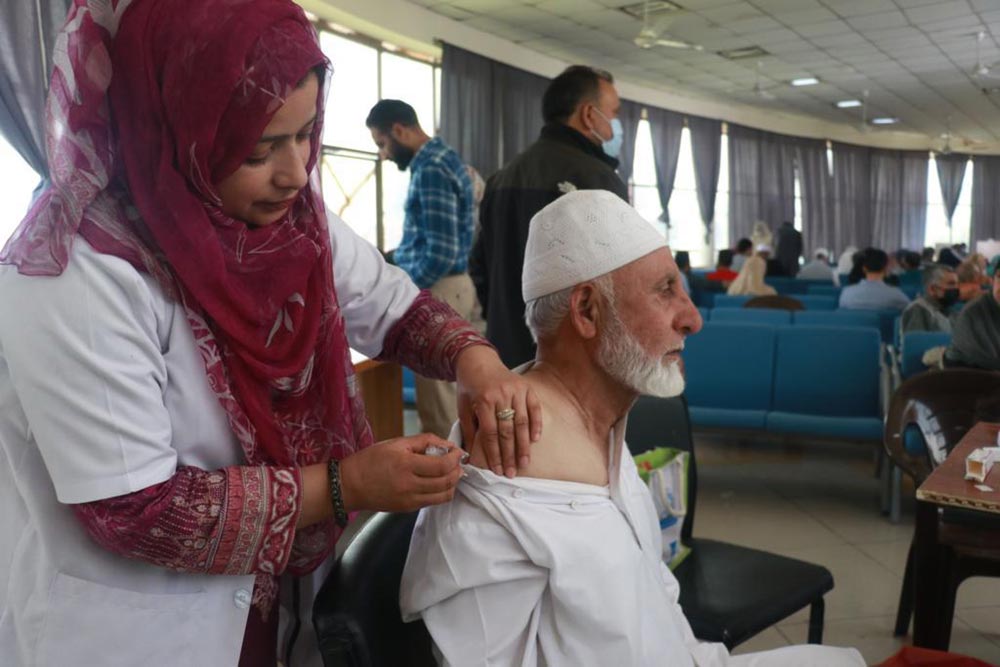
Credit: Nasir Yousufi
"Mass gatherings where more than three million people assemble in a confined place are prone to the spread of infectious diseases. So precautionary measures like vaccination plays a pivotal role in safeguarding the health of people," said Hajji Tahir Hussain, a veteran Hajj guide from Kashmir.
The epidemic risks of the pilgrimage have been clear to onlookers since as at least the year 968, when, according to historian Ibn Kathir, a plague called ‘Al-Mashri' hit Mecca, killing both pilgrims and their camels.
European worries about the Hajj as an outbreak hub grew in the 19th century, when a shipping boom caused cholera to travel worldwide – including, repeatedly, to the Hijaz. By the early decades of the 20th centuries, both Saudi and non-Muslim imperial powers had imposed quarantine measures, and some vaccinations for pilgrims as a requirement.
“Leaving everything aside, I have come here to get vaccinated. I am already vaccinated for COVID-19, but there are other essential vaccines which are being administered here. I am happy, as it is all for our collective safety and the safety of all pilgrims in the Hajj.”
– Bashir Ahmad Dar, pilgrim
Today, Saudi authorities require proof of recent vaccination against COVID-19, meningitis and polio, as well as yellow fever for hajjis from endemic countries. The seasonal flu jab is strongly recommended for all pilgrims. "Overseas pilgrims should get these vaccines in their home countries before travelling to Saudia Arabia," said the Kingdom's Ministry of Health.
The oil rich nation cancelled the Hajj in 2020 and reduced the number of pilgrims in 2021 and 2022 substantially. This will be the first year since the pandemic's onset in which the maximum number of Muslims are permitted to take part in the annual pilgrimage.
Have you read?
"Leaving everything aside, I have come here to get vaccinated. I am already vaccinated for COVID-19, but there are other essential vaccines which are being administered here. I am happy, as it is all for our collective safety and the safety of all pilgrims in the Hajj," said Bashir Ahmad Dar, a pilgrim from Srinagar.
In May, India started vaccinating its Hajj contingent – the world's third largest. After the three-year dip in numbers, the world's most populous country is expected to send about 175,025 pilgrims to Saudi Arabia this year.
Across India, authorities set up special cold storage furnished with the requisite numbers of doses to ensure supply during the special campaign.
In the southern state of Tamil Nadu, a vaccination drive for the 6,300 pilgrims given pilgrimage slots by the Haj Committee of India took place in 19 localities.
Telangana started its campaign on May 22. As per Mohamad Saleem, Chairman of Haj Committee of Telangana, apart from many hospitals in the capital city of Hyderabad, many places in other districts have also been designated to administer vaccinations.
In northern Rajasthan, 6,000 pilgrims attended vaccination camps conducted between 7 and 13 May.
Kashmir had a head start. "Since we already achieved the 100% COVID-19 vaccination coverage in the region, most of the pilgrims have already received the mandatory two doses of COVID-19 vaccines. So, we have administered only quadrivalent meningococcal meningitis vaccine (QMMV), seasonal influenza vaccine (SIV) and polio vaccine. These vaccines have been mandated as per international guidelines," said Dr Tabasum Jabeen, Director Family Health and Immunization, Kashmir.
“Besides the vaccines, the Ministry of Health ensures the regular health check-up of pilgrims both at the onset of pilgrimage as well as during the Hajj rituals."
– Er. Aijaz Ahmad, Member Haj Committee of India
The vaccines are usually adminstered at district and block levels at scheduled venues, said Jabeen. "We have already administered about 12,000 doses of these vaccines to pilgrims during this Haj vaccination campaign 2023 at district and block levels in the Union Territory [of Jammu and Kashmir]".
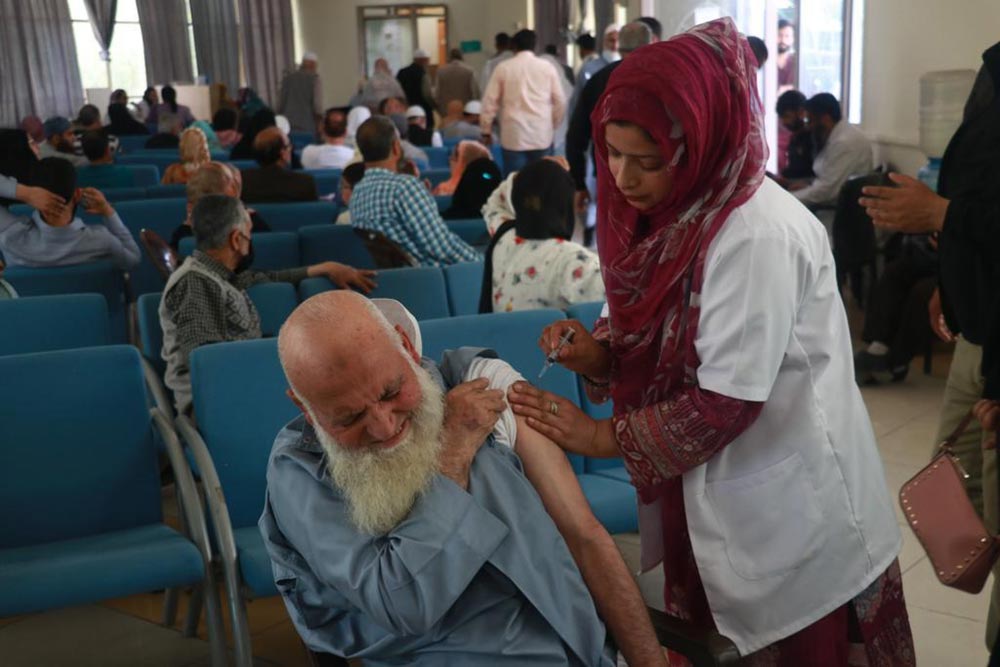
Credit: Nasir Yousufi
The whole Haj vaccination is being monitored and recorded online through HPIS (Haj Pilgrims Information System), which registers the pilgrims vaccinated in real time.
The Haj Committee of India in collaboration with Health Ministry, Ministry of Minorities and Ministry of Civil Aviation have collaborated to ensure the timely vaccination and proper health care of all pilgrims.
"Besides the vaccines, the Ministry of Health ensures the regular health check-up of pilgrims both at the onset of pilgrimage as well as during the Hajj rituals. Every year, countries set up health camps in Saudi Arabia to take care of the pilgrims from the country," said Er. Aijaz Ahmad, Member Haj Committee of India. "This year too, we have set up two camps attended by scores of doctors and paramedical staff," he added.
More from Nasir Yousufi
Recommended for you
